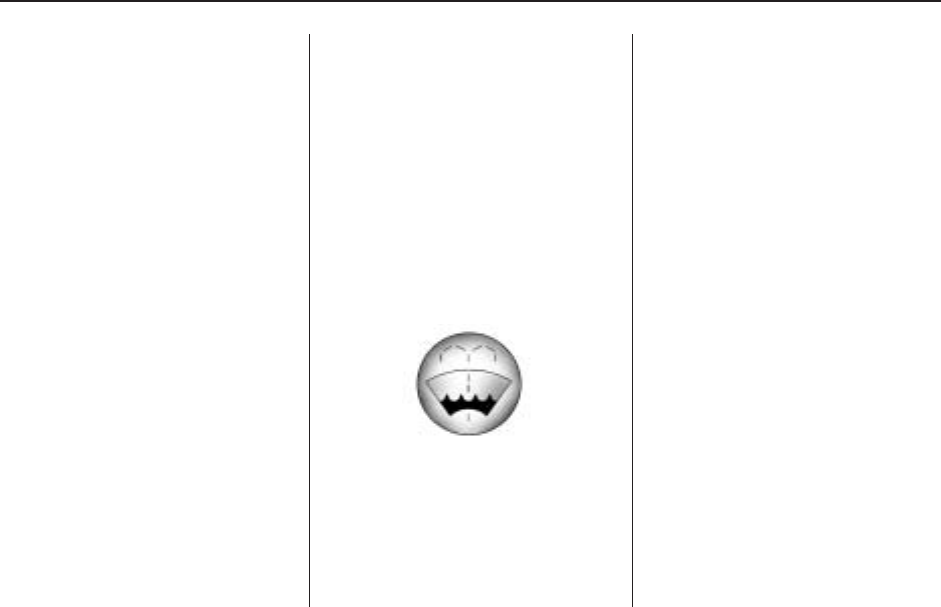
4. Wipe the cap and the top of the
reservoir clean.
5. Unscrew the cap and wipe the
dipstick with a clean rag.
6. Replace the cap and completely
tighten it.
7. Remove the cap again and look
at the fluid level on the dipstick.
The fluid level should be within the
area indicated on the dipstick
when the engine is cold.
What to Use
To determine what kind of fluid to
use, Recommended Fluids and
Lubricants on page 6-13. Always
use the proper fluid.
Notice: Use of the incorrect fluid
may damage the vehicle and
the damages may not be covered
by the vehicle’s warranty.
Always use the correct fluid
listed in Recommended Fluids
and Lubricants on page 6-13.
Windshield Washer Fluid
What to Use
When you need windshield or rear
window washer fluid, be sure to
read the manufacturer’s instructions
before use. If you will be operating
your vehicle in an area where
the temperature may fall below
freezing, use a fluid that has
sufficient protection against freezing.
Adding Windshield Washer
Fluid
Open the cap with the washer
symbol on it. Add washer fluid until
the tank is full. See Engine
Compartment Overview on
page 5-12 for reservoir location.
Notice:
• When using concentrated
washer fluid, follow the
manufacturer’s instructions for
adding water.
• Do not mix water with
ready-to-use washer fluid.
Water can cause the solution
to freeze and damage your
washer fluid tank and other
parts of the washer system.
Also, water does not clean as
well as washer fluid.
• Fill the washer fluid tank only
three-quarters full when it is
very cold. This allows for fluid
expansion if freezing occurs,
which could damage the tank if
it is completely full.
• Do not use engine coolant
(antifreeze) in your windshield
washer. It can damage the
vehicle’s windshield washer
system and paint.
Service and Appearance Care 5-27


















